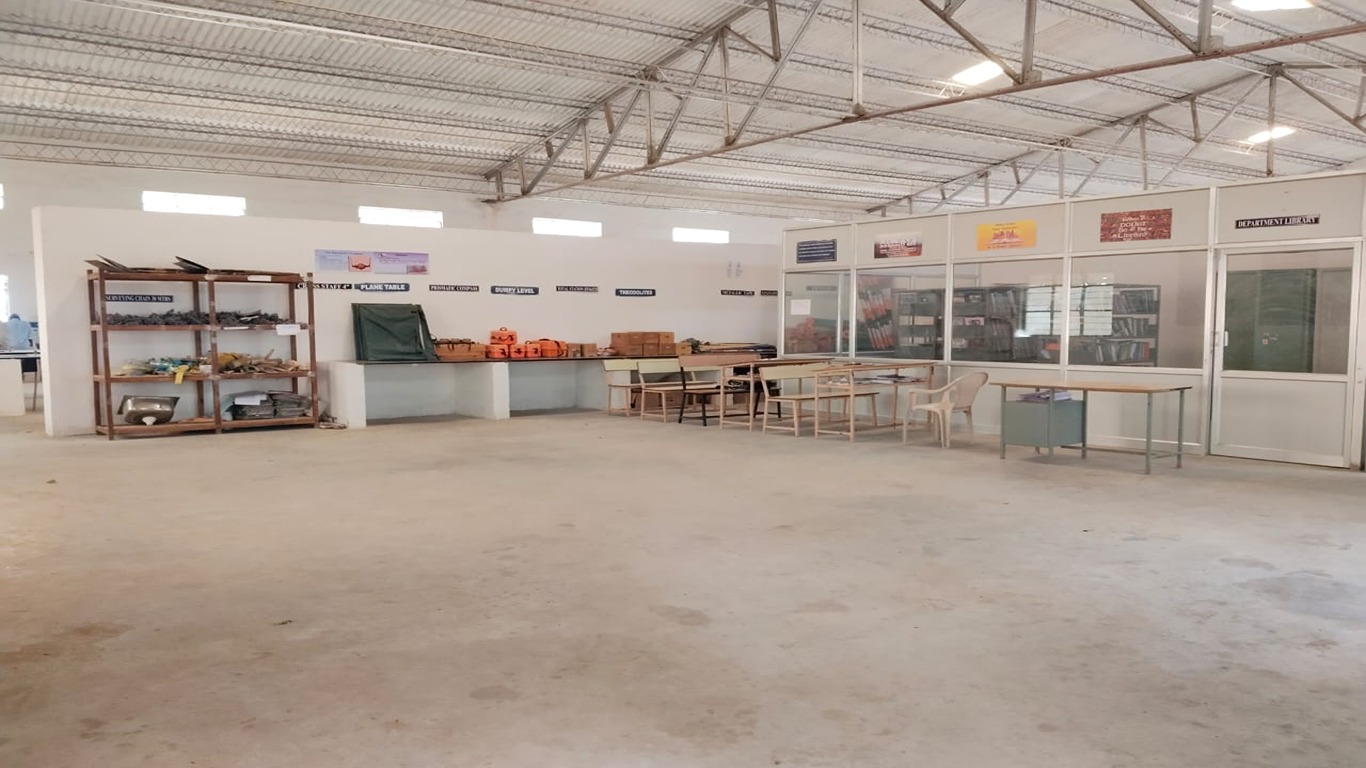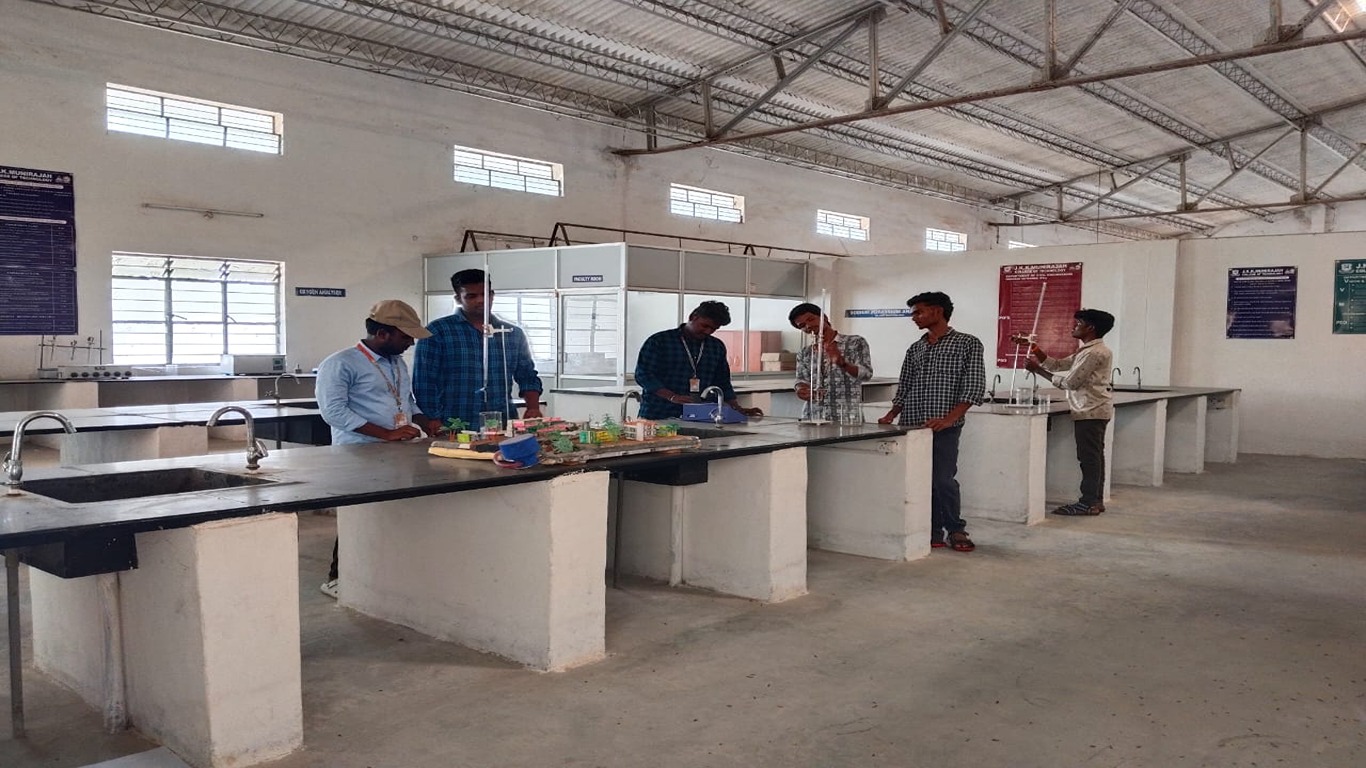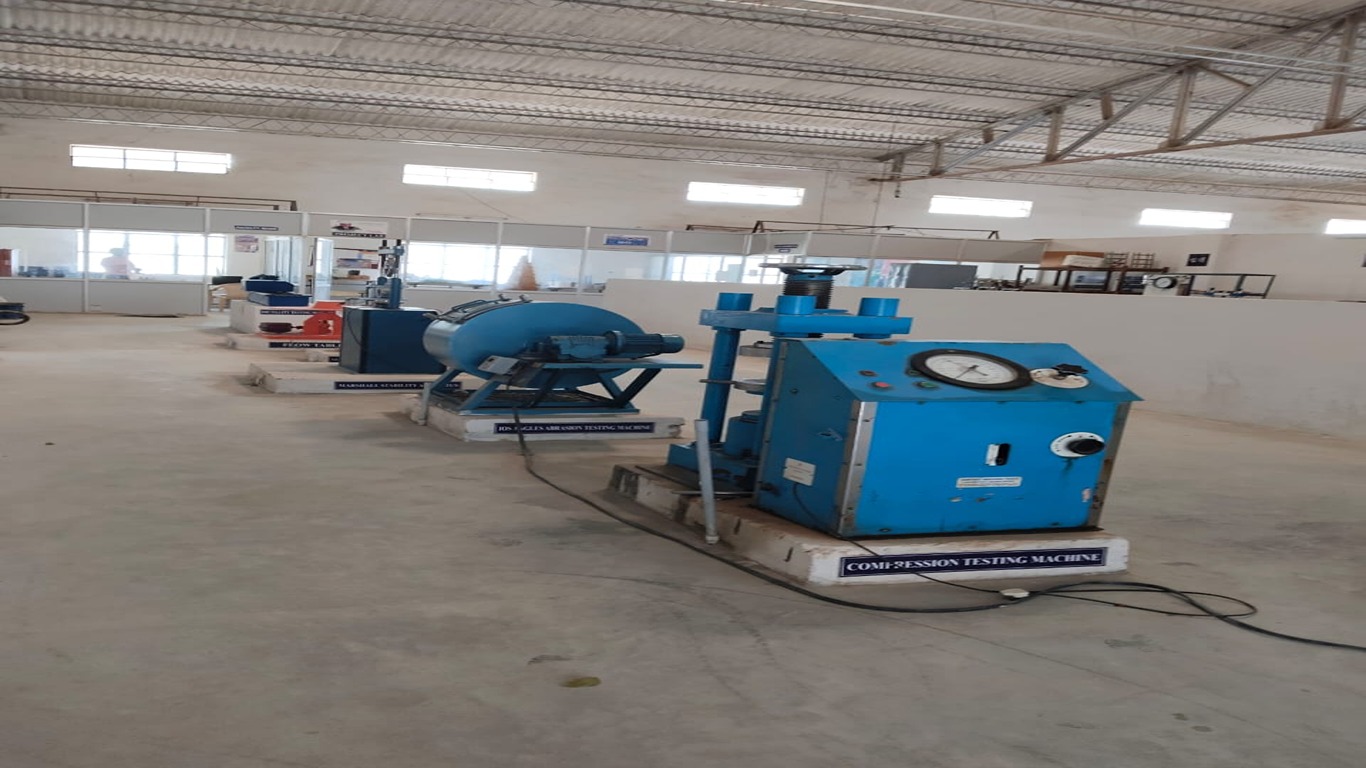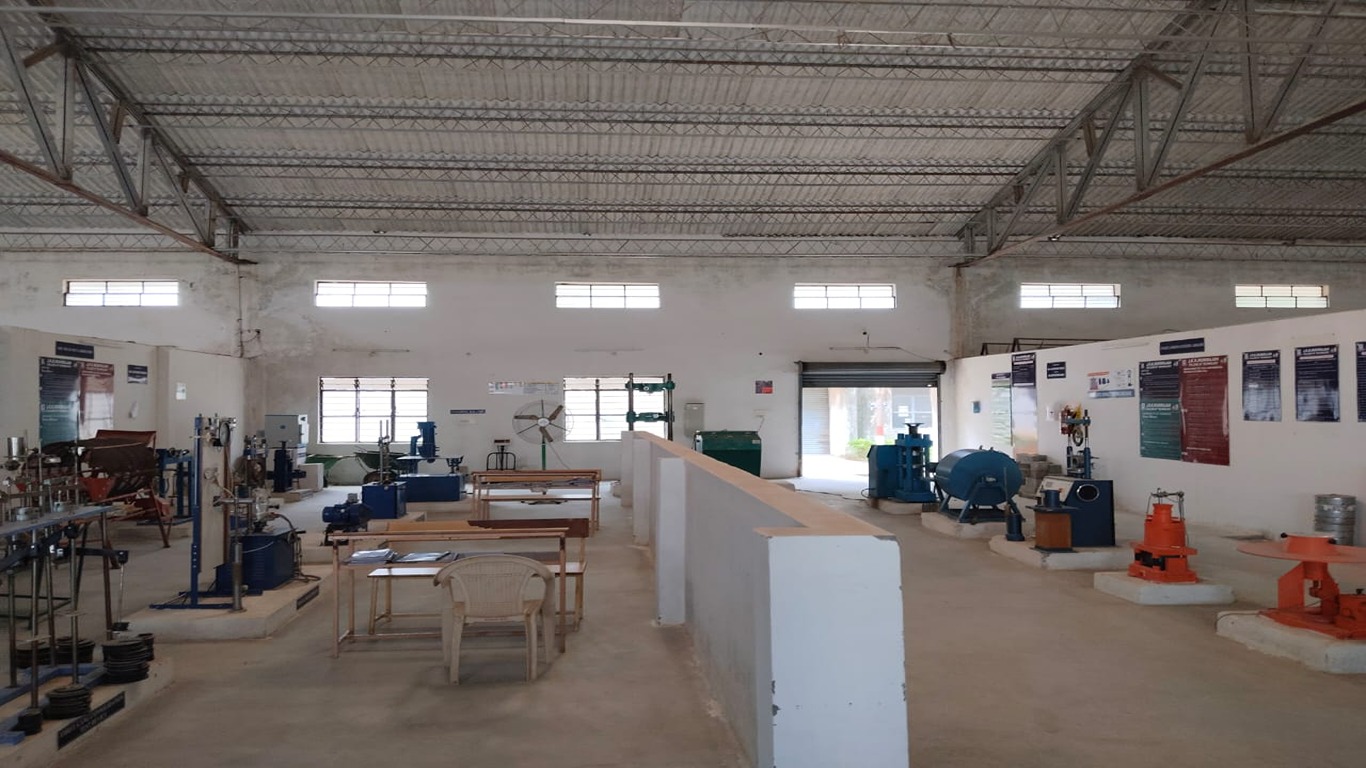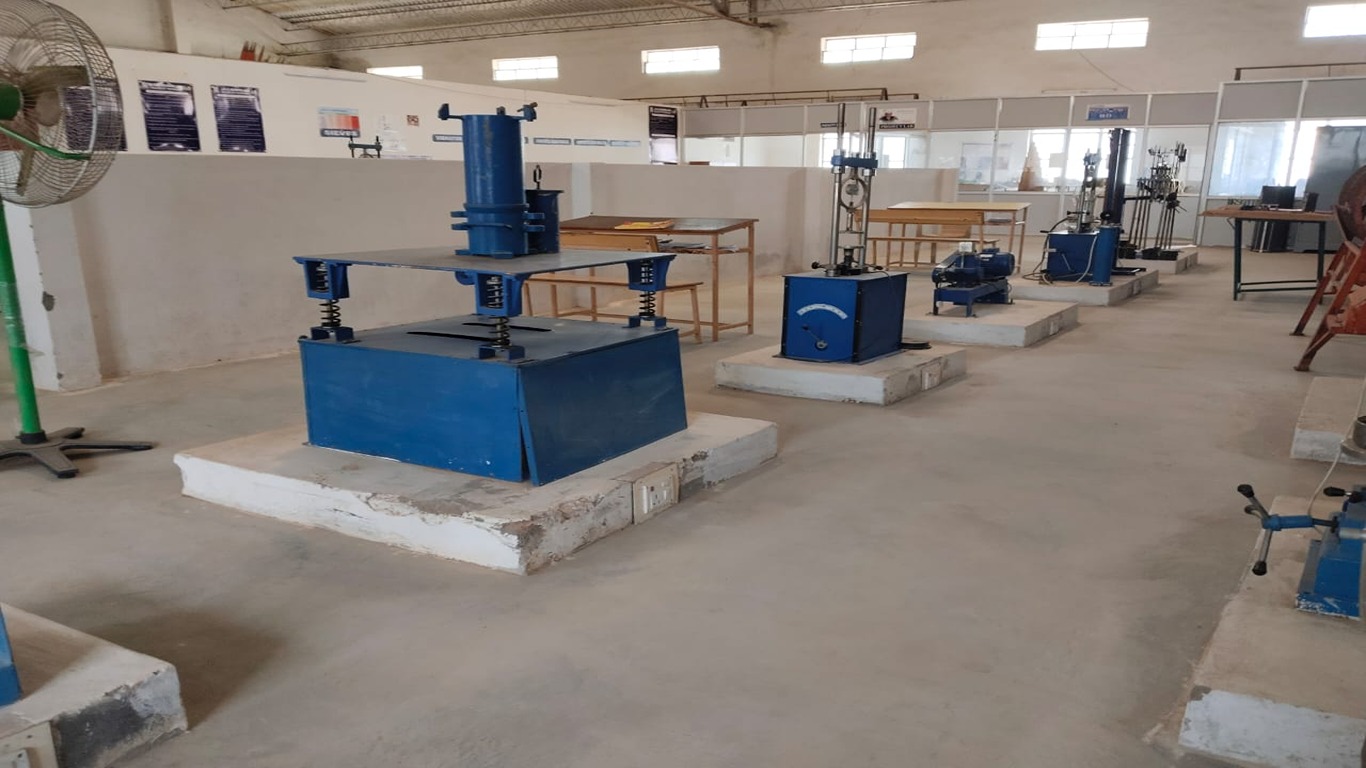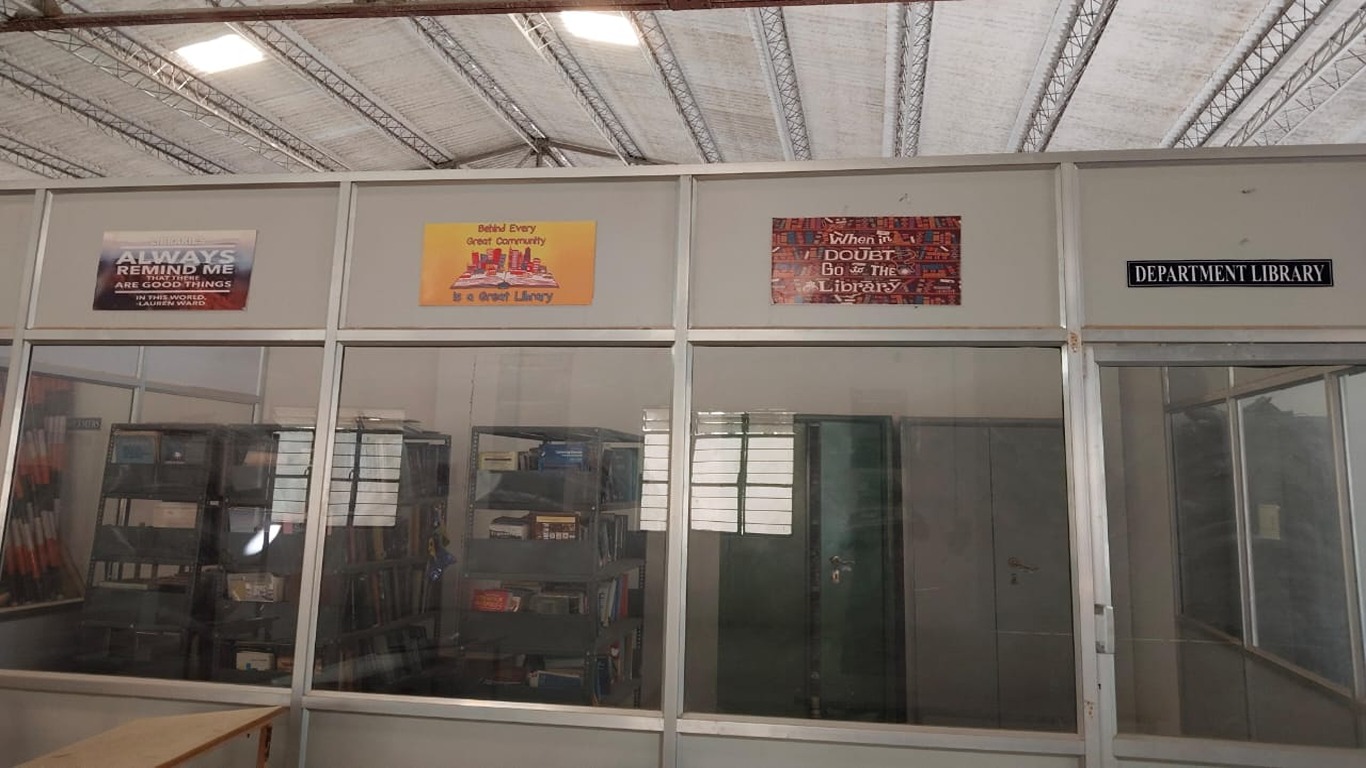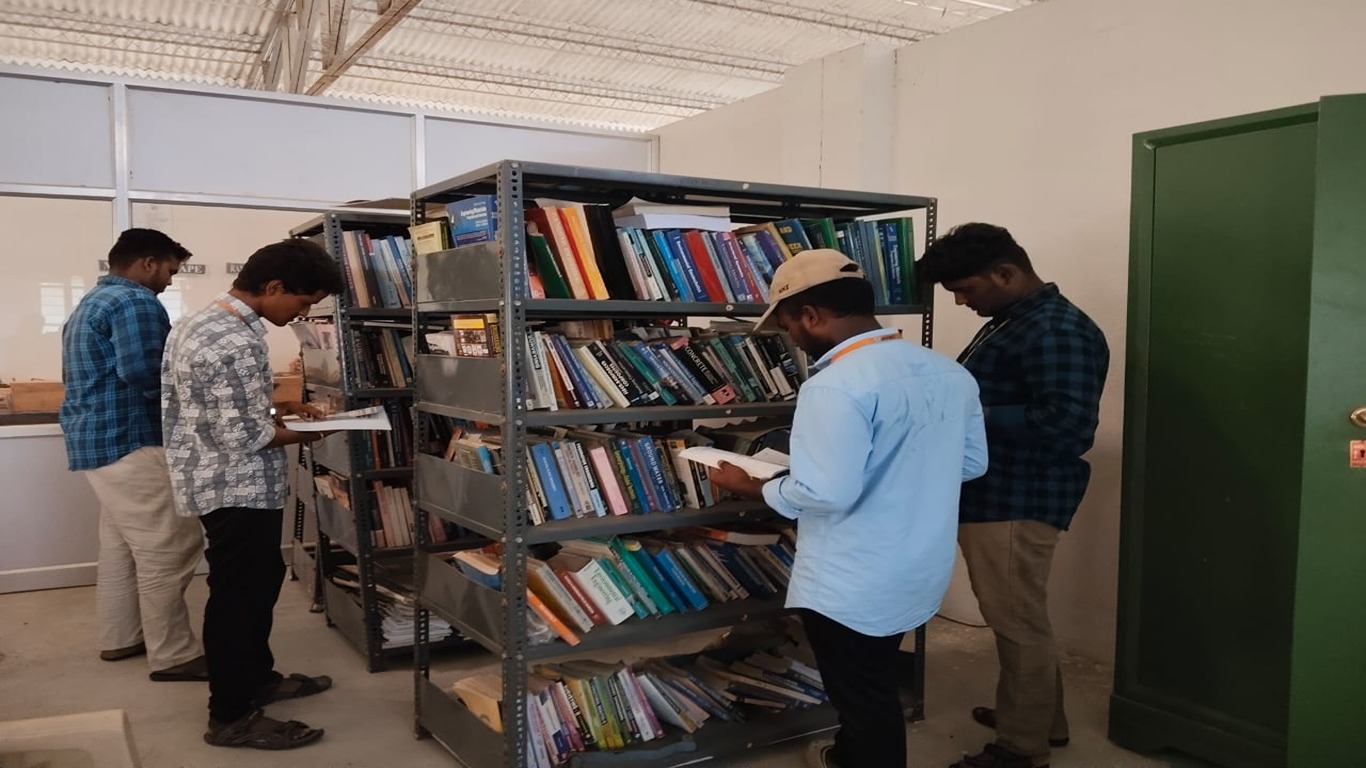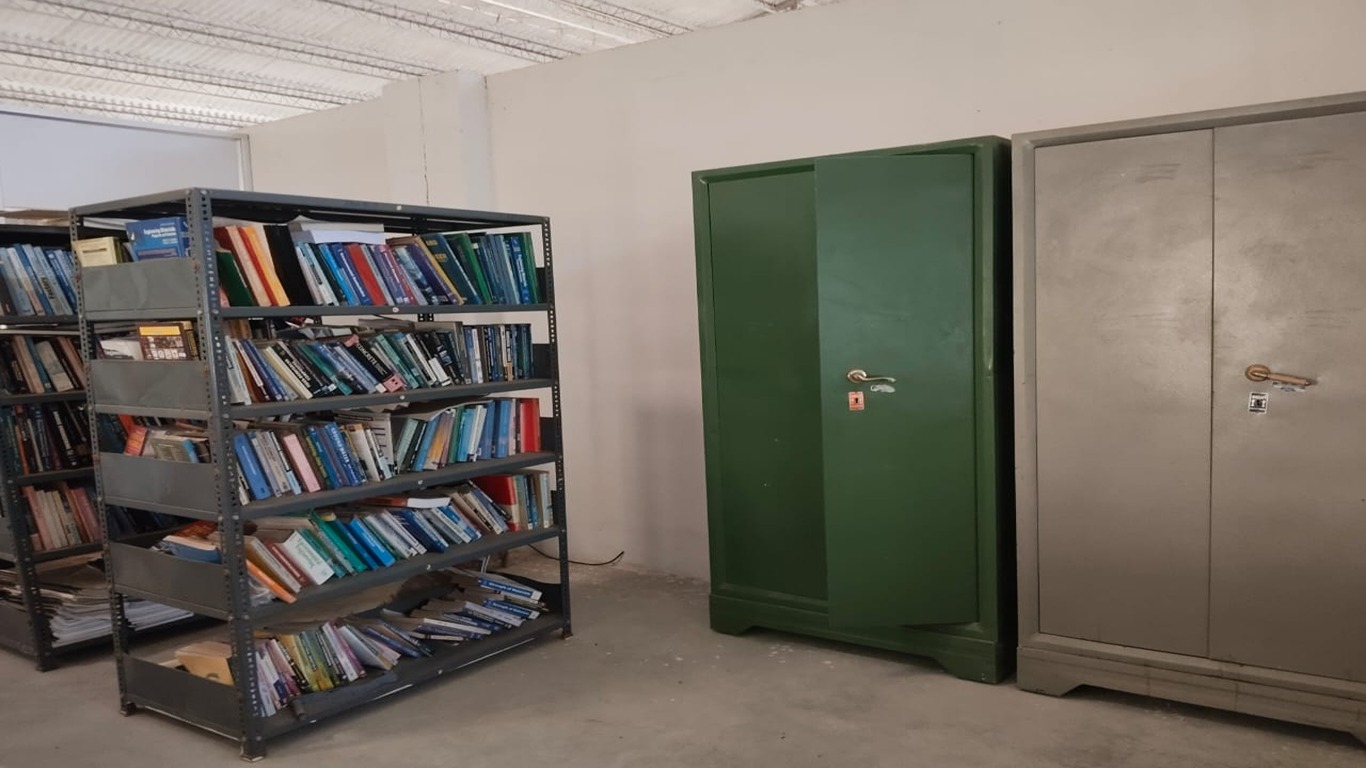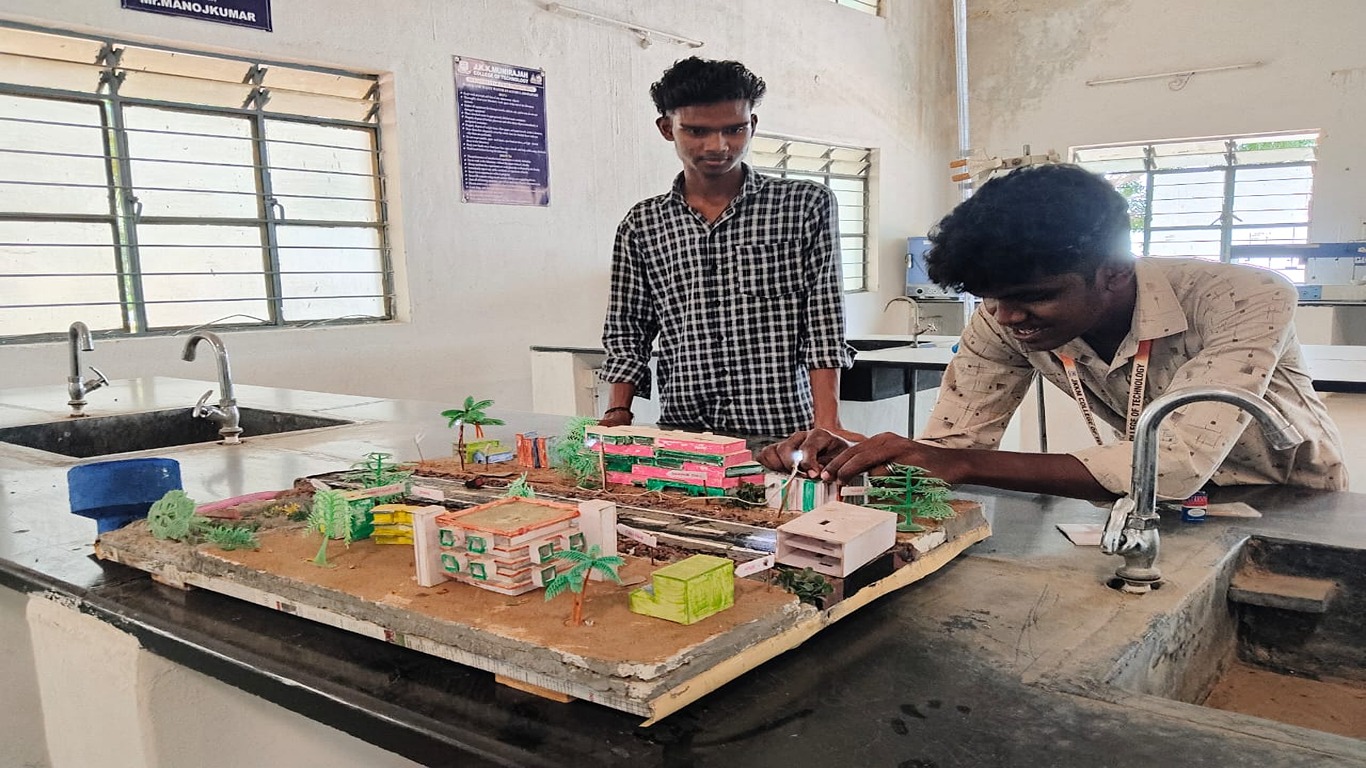Civil Engineering
What is Civil Engineering?
Civil engineering is the application of physical and scientific principles for the design, development and maintenance of both the constructed and the naturally built environment. This includes infrastructure such as airports, bridges, buildings, canals, dams, pipelines, power plants, railways, roads, sewage systems, and more.
Why should I study Civil Engineering?
Our society cannot function without civil engineers. Everything around us from roads, buildings, bridges and drainage systems are expertly designed and crafted by civil engineers. They have a direct impact on society as without these infrastructures the world cannot go about its everyday life.
Current Year Intake: 30 Seats
Vision
Our Department is committed to provide our students with the latest learning techniques and modern materials-knowledge in all sectors to make them globally recognizable Civil Engineers.
A thorough knowledge of the physical sciences, math, and engineering is developed during the first year followed by the civil engineering classes and capped by a senior design course in which teams of students work on real engineering projects.
Mission
Our Mission is to educate students from all over India, including those from the local and rural areas, so that they become enlightened individuals, improving the living standards of their families, industry and society.
We provide individual attention and world class quality of education and equip the youth with knowledge and training that will improve their employability and pave way for their gainful employment eventually leading to the development of the society as a whole.
PROGRAMME EDUCATIONAL OBJECTIVES (PEOs):
-
PEO1: Knowledge in Civil Engineering: Graduates shall attain state of the art knowledge in the various fields of Civil Engineering and will take every opportunity coming their way to augment the already existing knowledge.
-
PEO2: Successful in career: Graduates shall achieve successful career which they will be able to commit to with responsibility and passion.
-
PEO3: Commitment to society: Graduates shall display a high sense of social responsibility and ethical thinking and suggest sustainable engineering solutions.
PROGRAMME SPECIFIC OUTCOMES (PSOs):
-
PSO1: Graduates will be able to apply technical skills and modern engineering tools for civil engineering day to day practice.
-
PSO2: Graduates will be able to participate in critical thinking and problem solving of civil engineering field that requires analytical and design requirements to face the challenging and emerging needs of our society.
PROGRAM OUTCOMES (POs):
- Engineering Knowledge: Apply the knowledge of mathematics, science, engineering fundamentals, and an engineering specialization to the solution of complex engineering problems.
- Problem Analysis: Identify, formulate, review research literature, and analyze complex engineering problems reaching substantiated conclusions using first principles of mathematics, natural sciences, and engineering sciences.
- Design / Development of Solutions: Design solutions for complex engineering problems and design system components or processes that meet the specified needs with appropriate consideration for the public health and safety, and the cultural, societal, and environmental considerations.
- Conduct Investigations of Complex Problems: Use research-based knowledge and research methods including design of experiments, analysis and interpretation of data, and synthesis of the information to provide valid conclusions.
- Modern Tool Usage: Create, select, and apply appropriate techniques, resources, and modern engineering and IT tools including prediction and modeling to complex engineering activities with an understanding of the limitations.
- The Engineer and Society: Apply reasoning informed by the contextual knowledge to assess societal, health, safety, legal and cultural issues and the consequent responsibilities relevant to the professional engineering practice.
- Environment and Sustainability: Understand the impact of the professional engineering solutions in societal and environmental contexts, and demonstrate the knowledge of, and need for sustainable development.
- Ethics: Apply ethical principles and commit to professional ethics and responsibilities and norms of the engineering practice.
- Individual and Team Work: Function effectively as an individual, and as a member or leader in diverse teams, and in multidisciplinary settings.
- Communication: Communicate effectively on complex engineering activities with the engineering community and with society at large, such as, being able to comprehend and write effective reports and design documentation, make effective presentations, and give and receive clear instructions.
- Project Management and Finance: Demonstrate knowledge and understanding of the engineering and management principles and apply these to one’s own work, as a member and leader in a team, to manage projects and in multidisciplinary environments.
- Life-Long Learning: Recognize the need for, and have the preparation and ability to engage in independent and lifelong learning in the broadest context of technological change.
| S.No. | Faculty Name | Qualification & Dept. | Designation | Experience |
|---|---|---|---|---|
| 1 | Mrs.MOHANAPRIYA V | M.E., / CIVIL | HEAD OF THE DEPARTMENT | 7 Years |
| 2 | Mrs.BENAZIR BANU I | M.E., / CIVIL | ASSISTANT PROFESSOR | 11 Years |
| 3 | Mr.RUTHISHKUMAR G | M.E., / CIVIL | ASSISTANT PROFESSOR | 7 Years |
| 4 | Ms.SATHIYAPRIYA V | M.E., / CIVIL | ASSISTANT PROFESSOR | 4 Years |
| 5 | Mrs.P.REENA | M.E., / CIVIL | ASSISTANT PROFESSOR | 4 Years |
| 6 | Mr.VENKATESH R | M.E., / CIVIL | ASSISTANT PROFESSOR | 3 Year |
| 7 | Mr.MATHAN KUMAR M | M.E., / CIVIL | ASSISTANT PROFESSOR | 3 Years |
| 8 | Mr.RANGANATHAN V | M.E., / CIVIL | ASSISTANT PROFESSOR | 3 Years |
| 9 | Mr.RAJASEKARAN V | M.E., / CIVIL | ASSISTANT PROFESSOR | 3 Years |
| 10 | Mrs.SULOCHANA K | M.E., / CIVIL | ASSISTANT PROFESSOR | 2 Years |

